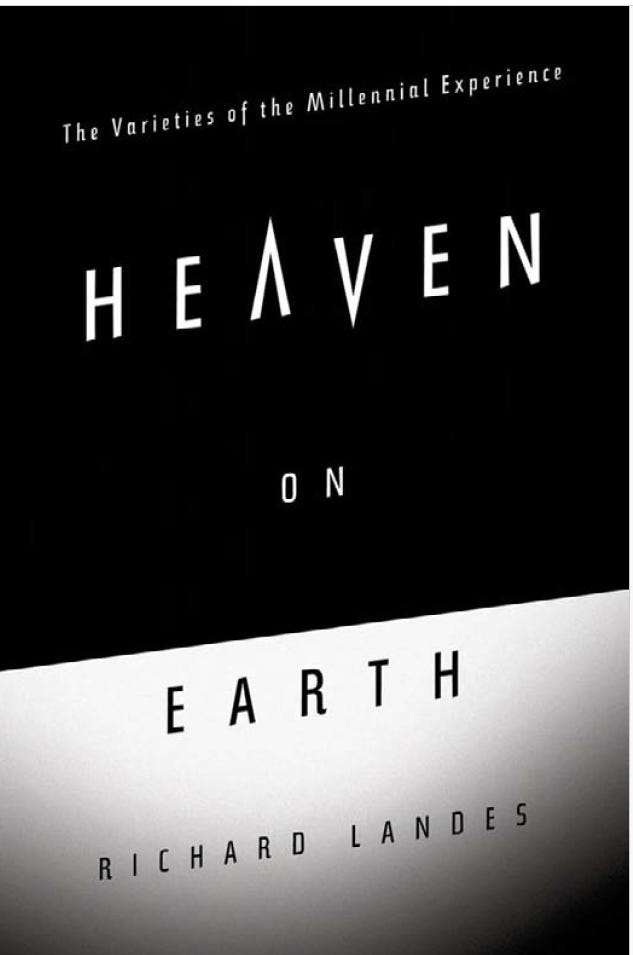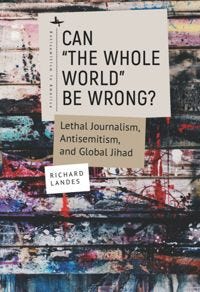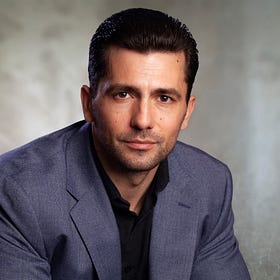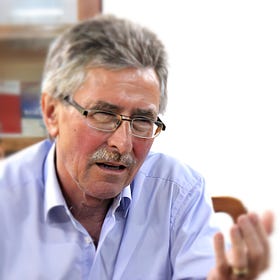It may well be at some point beyond the immediate horror of October 7th that it will be seen as the bursting of a major intellectual bubble’s moral economy equivalent to the financial crash of 2008. And while Hamas’ breach of civilization may have caught many contemporaries off guard, this wasn’t the case for Richard Landes, who’d warned us of this apocalyptically inspired terror a long time ago.
That Dr. Landes, as a Medievalist who taught at Boston University until 2015, has taken up this question is remarkable in several respects, including how he became interested in millenarianism very early on, explicitly asking what motivates people’s wish for the World’s end. The debate in this area is greatly indebted to his presentation on a universal history of Apocalyptic Thought in a remarkable volume titled Heaven on Earth, in which he gathers together a dazzlingly disparate array of phenomenal exemplars such as Jochim of Fiore’s Millennial Kingdom with the Melanesian Cargo Cult or the Xhosa Cattle Slaughter with the late Quing Dynasty Heavenly Kingdom. Significant is how his historical excursions enable us to illuminate the great totalitarianism of the 20th century in a new and surprising light. While the Center for Millennial Studies has emerged from this debate, Dr. Landes has also become an outsider within Academia from its disputes primarily because a majority of his peers have essentially catapulted themselves into a mindset in which the view of reality has been replaced by wishful thinking rather than rationally examining their field of study. And because people are increasingly losing themselves in cognitive dissonance, the mere attempt to grasp the rise of Islamism as a form of apocalyptic thinking has been met with a form of tacit ostracism. This, however, is precisely where the strength of Landes' thinking lies. Because he describes the Muslim world as a culture of shame and honor whose claim to superiority has been shattered by a tremendous civilizational humiliation, he grasps the essence of the religious furors christened as Islamism. And, whatever the case may be, he succeeds in giving voice to the unspeakable - thus allowing the historical forces behind the terror to be relieved-out.
And so we found our conversation with Richard Landes, who, as a Senior Fellow at Jerusalem’s Bar-Ilan University, had directly experienced October 7th at close quarters, was of great benefit – especially as an encounter with a contemporary who’s both thoughtful and intuitively clear-sighted about the event and its aftermath.
Richard Landes has published the following books, among others.
Related Conversations
Talking to ... Benedict Beckeld
Watch now (68 mins) | Undoubtedly, the question of oikophobia is a most puzzling social phenomenon. If the 19th-century psychiatrists understood it as the fear of being inside one’s home, the English philosopher Roger Scruton understood it to mean becoming a stranger, no, even more than that: an idiosyncrasy towards one's own culture that can take on ‘
Talking to ... Sam Vaknin
Listen now (75 mins) | Sam Vaknin is an Israeli author who’s written extensively on the question of borderline and narcissism - and this with an unparalleled clarity. Above all, he, who has wonderfully declared himself a contemporary of Shakespeare, is someone whose gaze looks far beyond the narrow confines of the psychological discipline. This is due not least to t…
Im Gespräch mit ... Klaus Vondung
Listen now (57 mins) | Wie gestaltet sich ein Gespräch über die Apokalypse? Wie könnte es anders sein? Heiter. Denn wenn man sich nicht im mysterium tremendum ergeht, in Heulen und Zähneklappern, zeigt sich, dass die Apokalypse ein intellektuell höchst anregendes Feld ist – und weil man sich hier keine göttliche Offenbarung, sondern Aufklärung über die sonderbare…
Im Gespräch mit ... Michael Wolffsohn
Watch now (81 mins) | Michael Wolffsohn ist ein unendlich geduldiger, höflicher Mensch – weswegen es ihm gar nicht schwer fällt, seinen eilends in Gedankensprüngen vorpreschenden Gesprächspartner freundlich darin zu erinnern, dass er, Wolffsohn, nur ein „Barfußphilosoph“ sei. Was aber, in Anbetracht jenes großen Projekts, das er sich mit seiner anderen jüdis…














Share this post